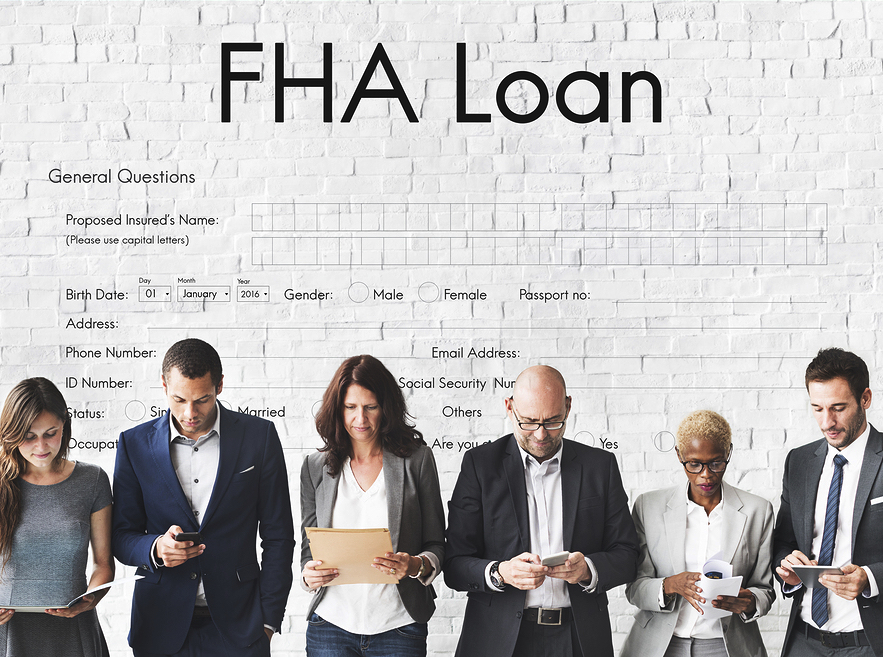Financing For First-Time Home Buyers in Chicago
A quick overview of common home loan options
Looking for information about common mortgage products in today's marketplace? If so, you're in the right place! Featured below is a quick overview of just some of the more widely-used home loan options for home buyers, including several that are ideal for first-time home buyers in Chicago.
1. 15-YEAR FIXED RATE MORTGAGE
What is a 15-year fixed rate mortgage?
A 15-year fixed mortgage is fundamentally similar to a 30-year fixed mortgage but typically has a lower fixed interest rate, allowing borrowers to save more money by paying less interest over the life of the loan.
The Pros:
- Lower Interest Rate Than 30-Year
- Interest Rate Locked For 15 Years
- Same Payment Each Month
- Pay Less Interest Over Life Of Loan
Is a 15-year fixed rate mortgage right for you?
15-year fixed home loans are ideal for borrowers who want to save more money long-term but prepared to have higher monthly mortgage payments. Like 30-year fixed mortgages, the interest rate of a 15-year fixed loan will remain the same over the entire life of the loan and so will your monthly payments. Since monthly payments are much higher with a 15-year fixed-rate mortgage,
Minimum Qualifications For A 15-Year Fixed Loan
Interested in a 15-year fixed rate mortgage? Learn more about whether this might be the right home loan option for you below.
Your Credit Score: In order to be approved for a 15-year fixed rate mortgage, you’ll need a minimum FICO® score of 620. A stronger credit score often means a lower interest rate but approval can still happen with the minimum 620 score.
Your Debt-To-Income Ratio: In most instances, your debt-to-income ratio (DTI) needs to be 50% or lower in order to qualify. You can estimate your DTI by adding all your monthly debt payments, including credit card debt, student loans, and car payments, and divide that by your monthly income before taxes.
Down Payment & Purchase Price: Potential 15-year fixed rate mortgage borrowers will need a minimum of 3% down and also between 2% and 6% of the purchase price for closing costs.

2. 30-YEAR FIXED RATE MORTGAGE
What is a 30-year fixed rate mortgage?
A 30-year fixed rate mortgage is the most popular home loan product available to home buyers. In short, a 30-year fixed rate mortgage is a loan that borrowers will pay back over 30 years. Additionally, a fixed rate also means the interest rate will not change during the life of the loan, which ultimately provides borrowers with more security and peace of mind.
Pros:
- Lower Monthly Payments
- Payment Flexibility
- Low Rate Is Locked For 30 Years
- Same Payment Each Month
- Mortgage Interest Is Tax Deductible
Is a 30-year fixed rate mortgage right for you?
30-year fixed rate mortgages are ideal for borrowers who prefer low monthly payments and the security of an interest rate that won’t change. The lower monthly payment should allow for more budget flexibility, although having a 30-year fixed rate mortgage also means you’ll pay significantly more interest over the life of loan.
How 30-year fixed rates are determined…
30-year fixed rate mortgages are ideal for borrowers who prefer low monthly payments and the security of an interest rate that won’t change. The lower monthly payment should allow for more budget flexibility, although having a 30-year fixed rate mortgage also means you’ll pay significantly more interest over the life of loan.
Your Credit Score: Lenders use your credit score to help determine your risk and how likely you will pay back the loan. Most will require a credit score of at least 620 to qualify for a 30-year fixed mortgage but it’s also worth noting that higher credit scores usually mean lower interest rates.
Where You’re Buying: Believe it or not, where you are planning to purchase a new home also helps lenders determine your interest rate and it isn’t uncommon for lenders to offer lower rates in certain states throughout the country. For current rates in Illinois, contact us at your earliest convenience.
Down Payment & Purchase Price: 30-year fixed mortgage rates will usually be lower if buyers are able to put more money down. More money upfront usually means a borrower will be less likely to walk away from the loan or risk losing the home in foreclosure. Additionally, your rate can also be lower if the loan-to-value ratio is stronger as well.

3. FHA MORTGAGE
What is a Federal Housing Administration mortgage?
FHA loans are insured by the Federal Housing Administration, which means the lender is afforded FHA protection should the borrower default on the loan. The primary advantage to FHA loans is that borrowers can make a lower down payment and can also have a lower minimum credit score in order to still be approved.
Pros:
Borrower can have a lower credit score compared to other mortgage products
A lower down payment is required from the lender
Borrowers can still qualify for an FHA loan despite previously filing for bankruptcy
Closing costs can be rolled into the loan
Is an FHA loan right for you?
Compared to FHA loans, conventional loans have stricter approval requirements and borrowers will need a higher credit score and a lower DTI to qualify. This makes FHA loans attractive for anyone with less than stellar credit or a troubling financial history that might make getting a conventional loan difficult. If you’re someone who can also only make a low down payment, opting for an FHA loan may be your best option as well.
A deeper dive into FHA loans…
Feel like an FHA loan is the right mortgage product for your situation? Learn more about what to expect from FHA financing below.
FHA Down Payment: As mentioned above, FHA loans don’t require a high down payment. In fact, the minimum down payment requirement is just 3.5%. Borrowers can choose to put down more, however, which can sometimes lead to a better interest rate.
FHA Mortgage Insurance: Because you’ll likely be putting less than 20% down on a home, you’ll have to pay mortgage insurance, which will add to your monthly payment. The first element to FHA mortgage insurance is an upfront mortgage premium (UFMIP), which usually equals 1.75% of your base loan amount. Additionally, you’ll also pay an annual mortgage insurance premium, which is based on a few different factors: the length of the loan, your loan-to-value ratio, your total mortgage amount, and the total amount of your down payment. Generally speaking, your mortgage insurance premium (MIP) payment will be between 0.45% and 1.05% of the base loan amount.
FHA Credit Score: FHA loans don’t require a high credit score. To be considered, you’ll need a minimum credit score of 580, or if you’re able to put down 10% of the purchase price, your credit score can be between 500 and 579. But, as said before, the higher your credit score the better the interest rate you’ll be offered.
4. VA HOME LOANS
What is a VA home loan?
VA loans are insured by the United States Department of Veterans Affairs and are a direct benefit to service men and women and their families. Most veterans and active service members are eligible for a VA loan but there are specific length-of-service requirements that determine whether or not prospective borrowers qualify.
The Pros:
- Doesn’t require a minimum credit score from select lenders
- No down payment required
- Mortgage insurance not required
- Affordable interest rates
Is a VA loan right for you?
VA loans are for veterans and active duty military members. To qualify, you’ll need a Certificate of Eligibility (COE) document that shows lenders you are eligible for VA financing. You’ll also need to verify your income, assets, and credit, as well as the property you’re planning to buy. VA loans can only be used to purchase a primary residence.
A quick VA loan summary…
The purpose of VA loans is to make home ownership affordable and obtainable for men and women who have served our country. Benefits such as no down payment, no mortgage insurance, and affordable interest rates also make VA loans a great option for any and all service members. Although you won’t be required to make a down payment, most VA loans do require a funding fee, which ranges from 1.25% to 3.3% of the loan amount. This fee is determined by your type of service, the size of your down payment, and whether you’re buying or refinancing. In addition, VA loans also typically require you to have additional money in the bank that you aren’t using for upfront costs, which ensure you’re able to make payments once the loan closes. This additional money in the bank is commonly referred to as Reserve Funds.

